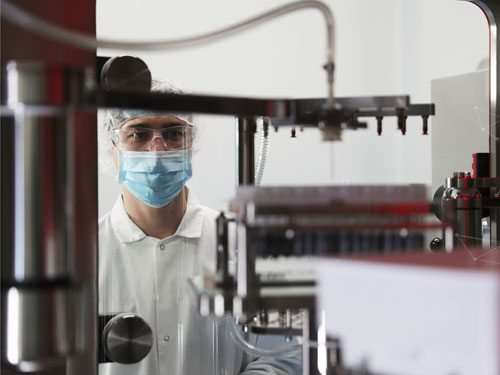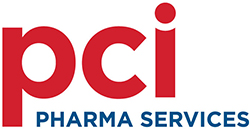One critical stage when sterility is of utmost importance is the fill-finish process whereby the drug product is filled into its final container — such as a vial, syringe or cartridge — and sealed.
To achieve enhanced drug product sterility, especially in multiproduct facilities, isolators represent a crucial element. Tom McGrath, VP Global Quality Development and Manufacturing Services at PCI Pharma Services, reports.
The significance of isolators
Isolators are closed systems that are designed to create and maintain a controlled sterile environment. They provide a physical barrier around processing technologies such as injectable filling lines and capping machines.
In sterile fill-finish operations, isolators play a multifaceted role to ensure the integrity and safety of the final drug product, including
- preventing contamination: isolators create a barrier that prevents airborne particles, micro-organisms and other contaminants from entering the critical processing areas, thus safeguarding the integrity of the product
- maintaining sterility: by controlling factors such as temperature, humidity and the pressure differential, isolators ensure optimal conditions to maintain sterility throughout the fill-finish process
- protecting operators: isolators not only protect the product from contamination by operators, but also shield them from exposure to potentially hazardous substances and ensure their safety during pharmaceutical manufacturing processes.
Advantages of isolators in sterile fill-finish processes
The integration of isolators into sterile fill-finish processes offers several significant advantages.
- Enhanced sterility assurance: isolators provide a robust barrier against contamination to ensure the highest levels of sterility throughout the fill-finish process.
- Improved product quality: by minimising the risk of contamination, isolators contribute to the production of high-quality drug products with consistent efficacy and safety profiles.
- Operator safety: isolators protect operators from exposure to hazardous materials and provide a safe working environment within the pharmaceutical manufacturing facility.
- Compliance with regulatory standards: isolators comply with stringent regulatory requirements for sterile processing and, most notably, EU Annex 1 updates.

Latest isolator technology investments at PCI Pharma Services
During the past 2 years, PCI has invested significantly in bringing the latest in isolator technology into its global sterile manufacturing network, supporting early phase clinical trials through to large-scale commercial launches.
Clinical-scale isolator filling solutions
With a focus on supplying life-changing therapies to patients as quickly and efficiently as possible, PCI utilises the latest advancements in robotic gloveless isolator-based sterile filling technologies.
Located at PCI’s clinical site in San Diego (CA, US), the fully robotic isolators — Cytiva’s Microcell unit and a larger SA25 platform — provide flexible aseptic fill-finish solutions for both small and large-scale clinical production runs for a variety of dosage forms, including vials, syringes and cartridges for use in autoinjectors.
The scalable solutions address our clients’ aseptic manufacturing needs from preclinical through first-in-human (FIH) trials and beyond, delivering products to patients safely and efficiently.
The Microcell platform offers fully automated gloveless filling with closed robotic isolator technology that provides both small batch flexibility and standardised manufacturing.
The agility of this technology makes it suitable to produce both personalised medicine batches, preclinical and early phase clinical trial supplies, thereby delivering true speed to patients.
Superior drug product quality is assured through advanced automation, removing the need for operator intervention during the filling process and limiting product contact.
Importantly, the Microcell technology can fill up to 1200 vial units per batch with fill volumes ranging from 1.0–50.0 mL.
Providing a scalable aseptic solution to support clients progressing through the clinical lifecycle towards commercialisation, the SA25 Aseptic Filling Workstation is a larger clinical-scale, gloveless isolator-based filling technology.
It offers scalable batch production of up to 20,000 units, supporting fill volumes from 0.2–50.0 mL. This technology provides flexible manufacturing solutions with the ability to fill multiple delivery device formats, including vials, syringes and cartridges, through the aseptic process.
Large-scale commercial isolator filling solutions
Expanding our established sterile manufacturing and lyophilisation capabilities and capacity at our Bedford (NH, US) campus, we have invested $100 million in a new large-scale 50,000 ft2 high throughput facility.

This commercial-scale plant will provide increased capacity using state-the-art Annex 1-compliant isolator technology, including high speed, large-volume vial filling and twin lyophilisation lines complete with automatic loading and unloading systems.
Processing batch sizes up to 300,000 vials at a rate of 400 vpm provides much needed large-scale capacity for our client partners when filling their life-changing biologics, mAbs, oligonucleotides, proteins and peptide drug products.
Smart fill technology, utilising peristaltic pumps and restoppering functions ensures minimum vial losses of our clients’ valuable drug product.
With full isolator containment, autoloading lyophilisation technology and PUPSIT, the new facility is fully compliant with EU Annex 1 and will be operational by early 2025; capacity reservation will be available immediately to secure sterile supply chains and deliver life-changing therapies to patients.
Conclusion
In the complex landscape of pharmaceutical manufacturing, the use of isolators in sterile fill-finish processes is indispensable. These enclosed systems provide a vital line of defence against contamination, safeguard the integrity of drug products and ensure the safety of both patients and operators.
With their ability to create and maintain a controlled sterile environment, isolators represent a cornerstone of modern aseptic processing and play a crucial role in maintaining the highest standards of quality and sterility in the pharmaceutical industry.

